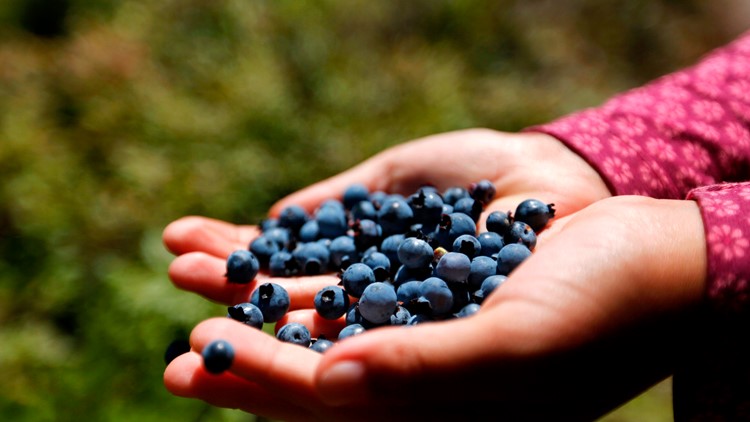NEW ORLEANS — Osteoarthritis (OA) is the most common joint disorder in the world – affecting 22.7 percent of the U.S. population - mostly middle age and older adults. It’s the most frequent cause of walking-related disability in the U.S. Called an inflammatory disease of joint "wear and tear,” OA effects the entire joint - involving the cartilage, joint lining, ligaments, and bone.
Rheumatology.org comments that OA, is “characterized by breakdown of the cartilage (the tissue that cushions the ends of the bones between joints), bony changes of the joints, deterioration of tendons and ligaments, and various degrees of inflammation of the joint lining (called the synovium).”
The website says the lifetime risk of developing OA of the knee is about 46% - with the hip at a 25% lifetime risk. The bottom line to OA is that it impacts human movement (gait), which curtails physical activities and quality of life.
According to research – Blueberries Improve Pain, Gait Performance, and Inflammation in Individuals with Symptomatic Knee Osteoarthritis - publish in the February issue of the online journal Nutrients, the major polyphenol, anthocyanin, found in blueberries accounts for its anti-inflammatory effect.
However, researchers from various divisions of Texas Woman’s University note that, “there have been no studies with blueberries investigating their effects on pain reduction, functionality improvement, and inflammation in individuals with OA.
The Texas researcher’s study objective was to, “examine the effect of freeze-dried, whole blueberries on pain, gait performance, and inflammation in individuals with symptomatic knee OA.”
Using a four month, double-blind, randomized, placebo-controlled, pre-test and post-test design, the researchers recruited sixty-three men and women between the ages of 45 to 79, with self-reported symptomatic OA. All participants agreed to exclude certain ant-inflammatory medications, and specific nutrients that might impact the study – along with agreeing not to consume any blueberry products or blueberries (other than what was provided) during the study.
The test participants were randomly placed in either a treatment group – receiving 40 grams of freeze-dried, whole blueberry powder, which was packaged in 20-gram packets, that were to be consumed twice daily, or a placebo group, who consumed 40 grams of a control powder, divided into 20-gram packages, consumed twice daily.
Pre and post testing included: anthropomorphic measurements (height & weight), leg length, blood pressure, fasting blood samples, gait testing, and a WOMAC questionnaire, which validates symptomatic OA.
The study concluded that, “freeze-dried, whole blueberry powder consumption for a period of four months results in a reduction in pain, stiffness, and difficulty to perform daily activities, an improved normal walking paced gait performance, and a favorable impact to certain inflammatory and anti-inflammatory biomarkers.”
What was most impressive was a, “significant improvement in normal paced walking gait performance in the blueberry group, indicated by increased cadence, velocity, step and stride length for both limbs, increased single support percentage to one gait cycle and decreased double support percentage to one gait cycle for both limbs. The improvement happened as early as 60 days and continued to improve through the end of the treatment period.”
All of which led the Texans to conclude that the, “present study suggest that blueberries may have positive effects on pain management and improving gait performance - contributing to better physical functionality for OA patients.”
Food is medicine – such as with Mediterranean-style eating pattern – colorful fruits and vegetables, fish, chicken, unprocessed grains, low fat dairy, and limited red meat – which has been scientifically proven to reduce inflammation.
The researchers in the blueberry study used a total of 40 grams of freeze-dried blueberry powder in divided 20-gram doses twice daily. A level teaspoon of the powder is equivalent to 4.2 grams at 15 calories.
A word of caution. The higher vitamin K content in blueberries means those people on blood thinners must check with their physician first.



